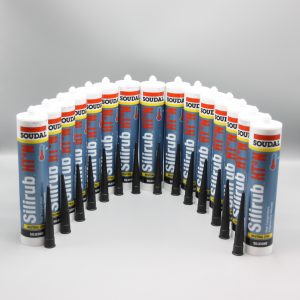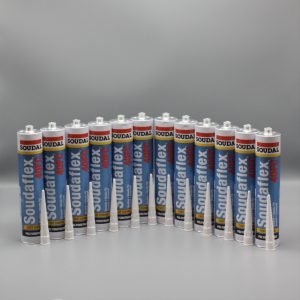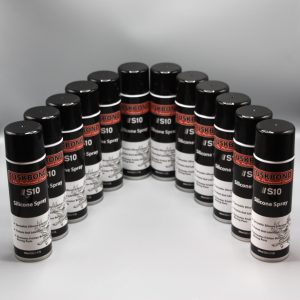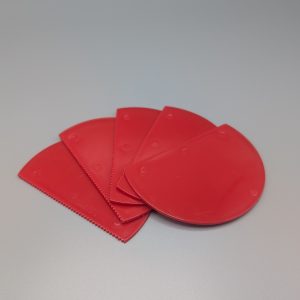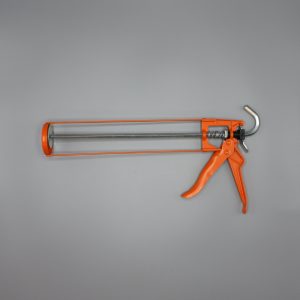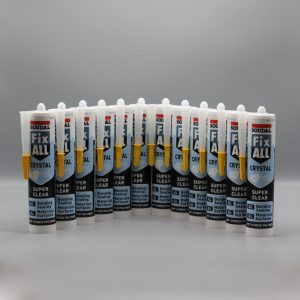Sealants and Silicones
The Bondrite range of Sealant and Silicone Adhesives are professional grade silicones for industrial, construction, high temperature and sanitary sealing applications.
Showing all 7 results
-
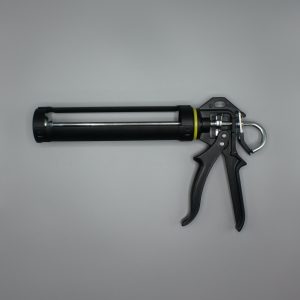
310ml Applicator Gun – HD
£21.60 Add to basket -

310ml High Temp Silicone – Silirub HT-N- Box of 15
£180.00 Read more -

310ml PU Panel Adhesive – Soudaflex 40FC – Box of 12
£86.40 Add to basket -

500ml Silicone Spray – Tuskbond S10- Box of 12
£86.26 Add to basket -

Adhesive spreader pack of 5
£6.00 Add to basket -

Applicator Gun 310ml
£9.30 Add to basket -

MS Polymer Sealant Fix All Crystal Clear – Box of 12
£117.60 Add to basket
What are Sealants and Silicones?
A sealant, is a viscous material that is applied to joints, gaps, and surfaces to provide a protective barrier against environmental factors, such as moisture, air, dust, and chemicals. They also offer structural stability and improve aesthetics by concealing joints and gaps in various applications. Whilst some sealants are known as decorators caulk the sealants we offer are of a superior quality. While decorator’s caulk is flexible when it dries, it isn’t as flexible as a sealant. Sealant holds up much better in damp conditions (in the bathroom and kitchen, for example) and in any areas where a lot of expansion and contraction may take place.
Therefore, sealants are the unsung heroes of many industries. As they play a critical role in the longevity and effectiveness of various materials and structures. From automotive to construction, aerospace to DIY, sealants have found applications in nearly every sector. These versatile substances function primarily by sealing joints, gaps, and surfaces to protect against environmental factors, while providing added stability and aesthetics.
Sealants and Silicones Explored
Let’s explore this range of adhesives in more detail.
Silicone Spray – Tuskbond S10
Silicone Spray also known as Tuskbond S10 is particularly useful in the furniture, textiles, construction, and bed manufacturing industries due to its cleaning and lubricating properties.
PU Panel Adhesive – Soudaflex 40FC 310ml
PU Panel Adhesive, also known as Soudaflex 40FC – is a high-quality polyurethane sealant which can be used on all usual building substrates, metals and polyesters.
It is a one-component sealant with high modulus for a wide range of sealing and bonding applications.
There is no adhesion on PE, PP, PTFE (Teflon®) and bituminous substrates.
MS Polymer Sealant Fixall Crystal Clear – 290ml
MS Polymer Sealant, also known as Fix All Crystal – is a high quality neutral, elastic, one-component construction joint and adhesive sealant based on SMX-Polymer.
This sealant can be used for all usual building substrates, treated wood, PVC, plastics and where good resistance to water, aliphatic solvents, mineral oils, grease, diluted inorganic acids and alkalis is required.
High Temperature Silicone Silirub HT-N – 310ml
High temperature silicone, also known as Silirub HT-N -is an elastic, single component engineering silicone sealant that is suitable for use in a wide range of industrial and domestic applications that are subject to very high temperatures.
It is particularly useful in the sealing of heating installation, pumps and engines due to its high temperature resistance withstanding temperatures of up to 280°C. It is also resistant to many chemicals, UV, rain, snow and the ozone making it a very useful sealant.
Applicator Gun – 310ml HD
Applicator Gun – 310ml HD, heavy duty sealant applicator gun suitable for all sealants, adhesives and mastics to be dispensed from a 310ml cartridge. It is designed for industrial applications where it would be in constant use as provides an easier “pull” trigger to aid dispensing.
Applicator Gun – 310ml
Applicator Gun – 310ml, is a good quality sealant applicator gun suitable for all sealants, adhesives and mastics to be dispensed from a 310ml cartridge.
It is suitable for silicones, polyurethanes, MS polymers and mastics being used in domestic, trade and industrial applications.
Wide Range of Sealants and Silicones
As you can see here at Bondrite, we can offer you a wide range of sealants and silicones designed to meet all your construction, DIY, and industrial needs.
From general-purpose sealants to specialist high-temperature silicone and polyurethane panel adhesive, we have the perfect solution for your application.
Our selection includes sealants & adhesives, adhesive sealants, building silicone, and all-weather sealants that will give you a durable, long-lasting result overall.
So, whether you need a multi-purpose sealant for window frames, or caravan, a bathroom sealant, or a silicone spray for lubrication, we have what you are looking for, all available with next-day delivery and free delivery on qualifying orders as well.
Types of Sealants and Silicones
In general, sealants can be categorised based on their composition, cure mechanism, or application area.
Here are some of the most commonly used types of sealants that are available:
Polyurethane Sealants
Polyurethane sealants are known for their excellent adhesion and flexibility.
These, for instance, are ideal for bonding door frames, window frames, and joints in construction projects.
Consequently, these mastic sealants can include high-modulus and low-modulus options, ensuring you can find the right adhesive for your specific needs.
As a result, these sealants provide you with superior strength and durability in challenging conditions on the whole.
MS Polymer Sealants
For those needing high-performance solutions, MS polymer sealants offer you exceptional adhesion to a variety of substrates, including glass, metals, and plastics.
They are often used in all-weather sealant applications and provide a waterproof seal.
Sealants & Adhesives for Every Application
These sealants have many use cases, for instance:
Construction
Our sealants & adhesives are widely used in construction for tasks such as sealing window frames and door frames and filling gaps in masonry.
Building silicone is also particularly effective for creating a waterproof seal in various structures; so whether you are sealing joints, stainless steel fixtures, or ensuring proper adhesion in complex assemblies, our sealant adhesive range will meet your needs.
DIY Jobs
For DIY jobs, we offer an extensive range of silicone adhesives – which are better than standard decorator’s caulk and multi-purpose sealants.
So, whether you are repairing your bathroom with bathroom sealant or tackling various home improvement tasks, our products are easy to apply and ensure professional-quality results as a result.
Our sealant guns also make application simple and precise as well.
Automotive and Marine
In the automotive and marine industries, adhesive sealants are used to bond and seal components such as door frames and window frames.
Here, our range of high-quality sealants offers you excellent resistance to water, chemicals, and extreme temperatures, ensuring that you get strong bonds in any environment.
Benefits of Using Our High-Quality Sealants
These sealants have many benefits to you, including, for instance:
Waterproof Seal
Our silicones & sealants create a robust, waterproof seal, preventing water ingress in areas prone to moisture.
This makes them perfect for applications such as bathroom sealant and glazing silicone for windows.
Energy Efficiency
By sealing gaps in window frames and other structures, our products help improve your energy efficiency, all while reducing drafts and heat loss at the same time.
Aesthetic Finishes
We offer a range of colours for our sealants and silicones, including cream white, black, white and clear options, allowing for a clean, seamless finish that complements any surface.
So, whether you are using general sealants or specialist sealants, our products ensure that you will get an aesthetically pleasing result when applied correctly.
Easy Application with Professional Results
Our sealant guns also ensure that you can apply the product smoothly and evenly for professional-level results.
Gun grade options are available for larger projects, making application quick and easy.
Need Help Choosing the Right Sealant?
With so many types of sealants available, you might wonder which product is right for your project.
So, whether you are looking for silicone spray, mastic sealants, or polyurethane panel adhesive, our customer support team is here to help you.
If you need help selecting the right silicone adhesives or multi-purpose sealant, our experts can guide you through the options.
Fast and Reliable Delivery
We also offer next-day delivery on many of our sealants and silicones, and for larger orders, we provide free delivery to your site as well.
This ensures you can get the materials you need for any project without delay.
Datasheets
Each of our products can also come with a detailed datasheet, providing you with the technical specifications and guidelines for use.
So, whether you are looking for a high-performance product or a low-modulus option, our datasheets will help you have the necessary information for safe and effective application.
Contact us if you can not find the one you need on our product pages.
About Bondrite Adhesives
Here at Bondrite, your adhesive needs are our top priority, with a customer service team that can answer any question you may have about adhesives. So, if you are not sure if these are right for you, give us a call, and we will happily help you.
Consequently, as a dedicated family-run business with decades of experience in the industry, we like to believe our customer support is of a very high quality. We are not just about selling adhesives; we’re about building lasting relationships, and we can provide you with a high level of customer service and further information.
As a result, we understand that choosing a suitable adhesive is crucial for your project, company, and industry. That’s why we’re here to make it easy for you.
With Bondrite, you get more than just a glue or an adhesive. You receive a commitment to quality service.
Need Expert Advice?
Our friendly team is ready to discuss your requirements over the phone, review your technical drawings, and provide tailored recommendations where required.
If we are not the perfect fit for your needs, we will direct you to someone who is. We can also offer you very good delivery rates, with free delivery Monday through Friday and next-day delivery to the United Kingdom (UK). Don’t just buy adhesives — choose Bondrite for a solution that sticks!

